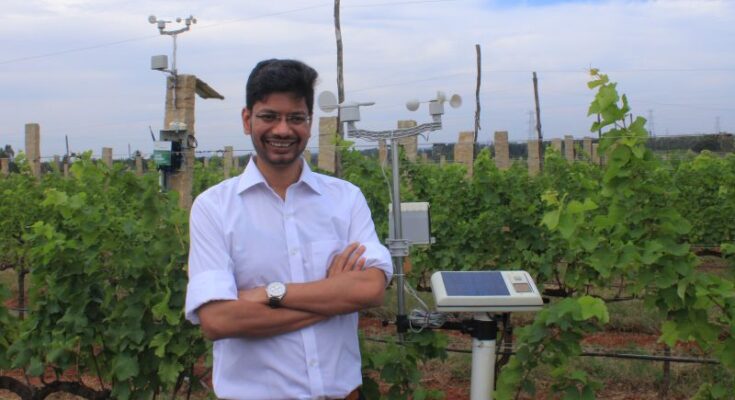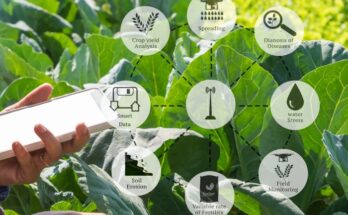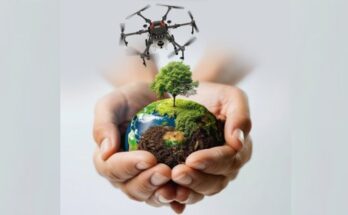Global warming and climate change has been a part of numerous discussions presided by world leaders over the past decades. It is a pressing problem and has almost become, unfortunately, a passé but still deserves our careful consideration. Human activities add to the lion’s share of CO2 emissions – with recent studies showing as much as 48 per cent increase in carbon dioxide since pre-industrial levels. The main culprits include deforestation, reliance on fossil fuels and farming livestock. One lesser-known victim of this global crisis is agriculture.
Impact of climate change on farming
Agriculture is extremely vulnerable to climate change and the numbers are not in its favour. To take India as a context, a study under the National Innovations in Climate-Resilient Agriculture (NICRA) projected that yields of rainfed and irrigated rice will reduce by <2.5 per cent and 7 per cent by 2050 respectively. Numbers for wheat and maize yields are projected to reduce by 6-25 per cent and 18-23 per cent by 2100 respectively. Additionally, small farms make up about 90 per cent of the total 570 million farms worldwide and are extremely sensitive to these climatic fluctuations.
Impact of climate change on horticulture
Horticulture is not spared from the implications of climate change either. Unpredictable high temperatures and rainfall patterns will have a big impact on the productivity of fruits and vegetables. For example, temperature increase can cause photosensitive crops to mature faster, pollination will be impacted significantly, flower and fruit drops will occur frequently, more water will be required for irrigation and the list goes on.
Fruits like grapes, citrus and melons which are photosensitive will mature earlier by about 15 days and high temperature plus moisture stress can cause apricot, cherries and apples to crack. Since India is the 2nd largest producer of fruits and vegetables in the world, our agrarian economy is at risk of collapsing if the issue of climate change isn’t addressed right now.
Why do we need climate-resilient agriculture?
Due to the prolonged threat of global warming, its impact will have far-reaching consequences that may not be apparent at present but can rear its head in the coming decades. Food security is one of them.
You may also like to read: India sharpens focus on geospatial technology application in agriculture
Food security is a global concern and one that is part of recent discussions in light of supply chain stress caused by the ongoing Russia-Ukraine conflict. But geopolitical issues aside, climatic issues will be a greater threat in the future and could lead to food insecurity. The scenario will lead to higher food prices but with lower output due to the unchecked heat waves impacting crop yields globally. The rising temperatures will also lead to increased stress on livestock which in turn will also affect the global food supply. The FAO (Food and Agriculture Organization of the United Nations) in 2015 projected that the global food demand could increase by more than 60 per cent by 2050, which will put further strain on the already climate-sensitive food supply chain.
Tech-driven countermeasure to enable climate-resilient agriculture
Climate change is happening and taking a proactive as well as a concerted effort is the only way to deal with this global phenomenon. A sustainable take on agricultural operations is one key approach to countering or mitigating the effects of climate change on our food supply.
When we talk about sustainability in farming, it is in relation to a more data-driven approach backed by science. Precision farming is an umbrella term which is built on this philosophy of using data collected via sensors, satellite imagery, artificial intelligence (AI), internet of things (IoT), drones, and automation among other sources to help make a more informed decision with farming operations. This can directly lead to higher quality and quantity of yields while reducing farm input costs and agriculture’s overall impact on the environment through lower usage of fertilisers and pesticides.
Precision farming tools
One of the key frameworks which enable precision farming at scale are the IoT sensors and other supporting tech like drones, GIS (Geographic Information System) and NDVI (Normalised Difference Vegetation Index) that help with gathering, measuring, analysing and storing real-time farm metrics. Thanks to IoT systems, farmers are able to produce better yields and as a byproduct, contribute to better food security and safety. The data-driven approach also allows room for better traceability within food production and farm management. The ability to monitor the entire supply chain leads to greater savings and larger profits for the farmers, making it a win-win situation for both the producers and the consumers.
Complementing precision farming are technologies like Variable-rate Technology (VRT) which allows for precise and controlled use of water, natural resources and farm inputs based on zone-specific deficiencies informed by farm-level data. This helps in minimising the wastage of precious resources and lowering the usage of fertilisers and pesticides leading to reduced emission of greenhouse gases and contamination of soil and water bodies.
Early disease prediction and local weather forecast also come with the territory of precision farming, empowering farmers to take preventive measures against climate change well in advance and further increasing their farming productivity and profitability.
Climate-resilient agriculture – A sustainable future
Climate change is not just our problem but everyone’s problem. We have the tech to make our food supply chain more resilient against potential threats like rising temperatures and erratic weather patterns brought by climate change.
Precision farming is already part of the agricultural ecosystem but just not at scale. Mass adoption will only come, especially in developing nations like India, if the tech is affordable and accessible to farmers with small land holdings. Many startups are already working on this issue by developing agritech solutions with both cost and form factors in mind. A local pool of experts and systematic knowledge transfer of these technologies via government initiatives and agri institutions are also key in educating the average luddite farmers. Government initiatives like the Indian Digital Ecosystem of Agriculture (IDEA) and AgriStack also serve as a great foundation for facilitating precision farming at scale and working towards combating climate change.
(Views expressed in the article are author’s own.)





